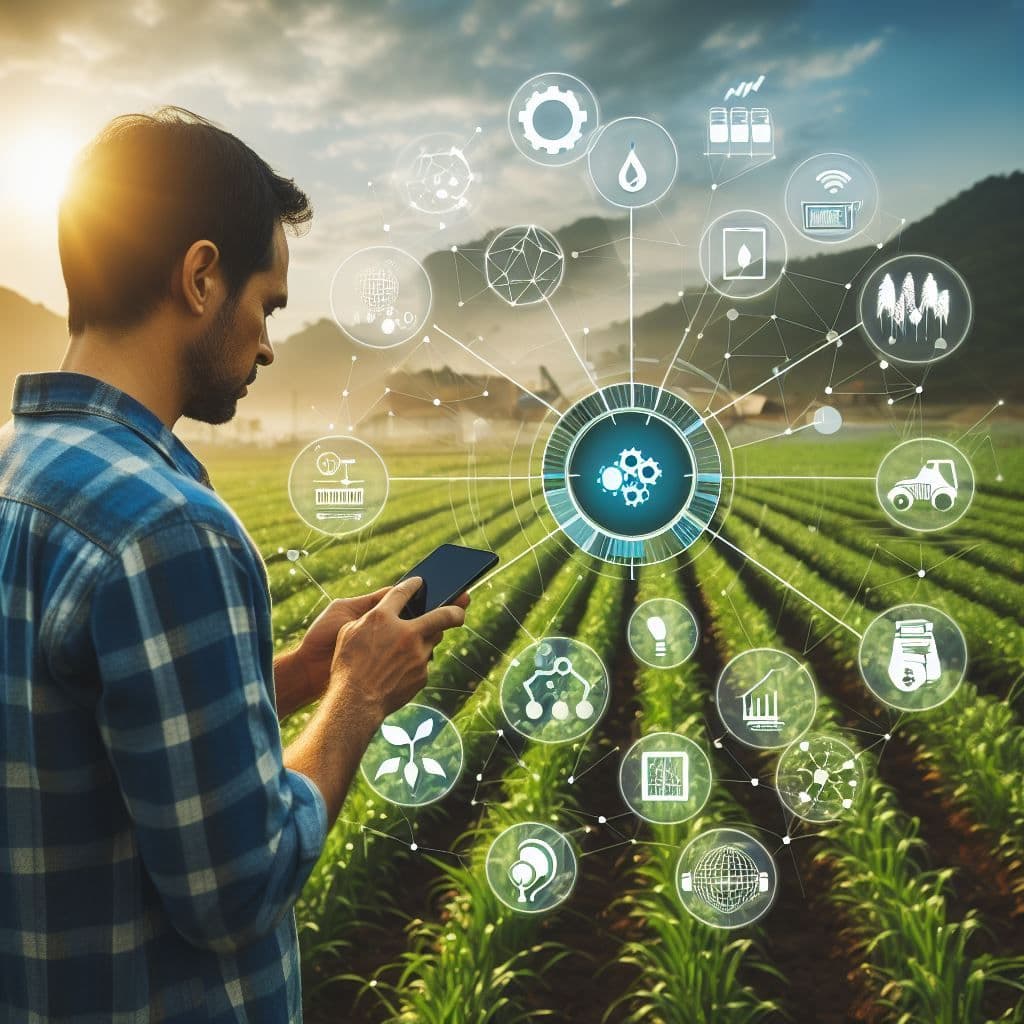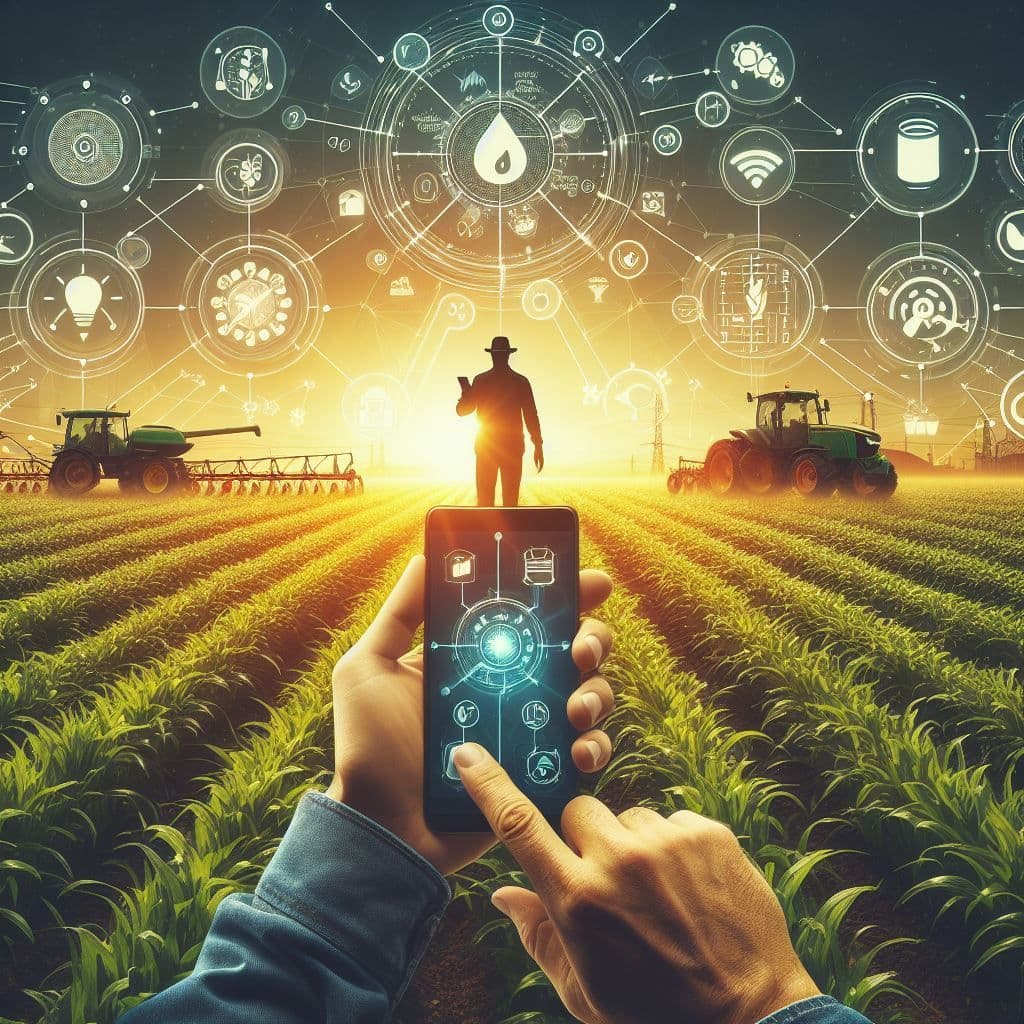
Agricultural Technology: The Future of Farming
June 7, 2024
Learn how technologies like IOT, AI and Biotechnology as seen in GMPs are perfecting the future of Agriculture
Internet of Things
Agricultural Technology also called Agritech is a form of Agriculture that combines digital technology to improve the yield of food production, minimise losses and enhance efficiency.
As a little child, I have always loved farming and agriculture in general, especially commercialised farming and have been fascinated by the efficiency at which modern agriculture functions; the use of tractors, planters and harvesters, modem irrigation and manufacturing of fertilisers.
All of these paved the way for what we know today as Agritech; a fast growing branch of agriculture that leverages advanced technology in agriculture.
While it might seem new and currently trendy, Agritech did not begin today. Its origin can be traced back as the 1980s, when computers began to move from analog to digital. But, until very recently, much attention hasn't been paid to Agritech until the explosion of Artificial Intelligence; a critical component in modern day technology.
The Importance of Technology in Agriculture

From industrialisation to genetic engineering, technology has always been a saving grace to the future of Agriculture and by extension, humanity.
The importance of technology in agriculture is threefold; Industrial impact, Genetic Impact and Computerised Impact.
The Industrial Impact:
We can't discuss Agritech without speaking of its earliest advancements. The invention of merchandised farming tools like the Tractors, Harvesters and Planters. This also included the invention of preservation techniques like Pasteurization of milk, refrigeration and canning. These technologies allowed agriculture to flourish and food to be readily available to man even in seasons of droughts. Humanity would have perished if not for these earliest agritech methods.
Genetic Impact:
Genetic engineering and modifications or biotechnology involves the modification of agricultural products to get desirable qualities and eliminate the ones that are not wanted. This has helped produce many products that yield in multiple folds, helping to preserve food quality. These products are called Genetically Modified Products.
Computerised Impact:
This is the application of computer technology to improve agriculture practices. It involves the use of automation, Artificial Intelligence, Sensors and other digital tools.
With these technologies, most areas of agriculture can be automated and left to run on its own, with minimal human supervision while sensors and actuators do most of the job.
Examples of Agricultural Technology
- Precision Technology: The use of sensors to monitor biotic and abiotic factors like humidity, rain and even weather predictions helps to keep agriculture going on and on. The use of laser technology can also be used to pick up abnormalities in plants and animals.
- Automation: Irrigation systems, automated surveillance bots and tractors help reduce human intervention in plantations.
- Greenhouse Technology: Green houses are special enclosed areas where highly maintained and protected agriculture is carried out. The use of greenhouses has helped produce crops that are not affected by adverse environmental factors outside of it.
- Supply Chain Management: Using big data and blockchain technology , farmers can track their products and how well it does right from the farm to the last consumer. With data analysis, these data can be used to better plan agricultural resources and prevent wastage.
Challenges of Agritech
Despite the numerous advantages that come with Agritech, it still has some challenges that prevent entrepreneurs from entering into the industry.
- Hard to Penetrate: Agritech is very expensive and except one has a substantial capital or early investor, starting a startup in Agritech is technically hard.
- Cyber Security Issues: With every digitised technology comes the risk of cyber attacks. Food is a very important aspect of humanity and agriculture contributes significantly to the GDP of many food producing countries. As modern warfare continues to go bloodless, nations and terrorists might now begin to attack servers and databases that control Agritech.
- Climate change: Despite efforts made to accurately predict climatic conditions, the sudden and unexpected changes in climates still takes the world by surprise sometimes and since climate and weather are very important factors of agriculture, it affects the efforts of Agritech.
- Over dependance: Technology can make farmers rely too much on it and neglect their own human strengths. This can cause problems of laziness and even unemployment as automated farming will take the jobs of many.
- Rural adoption: The majority of agriculture and the world's food production is done by rural farmers and this means that the rural areas of the world may be left out of this technology as they lack the human, financial and brain resources to handle Agritech.
Conclusion
Agritech is here to stay. As the world is affected by technology, same with agriculture.
With sufficient foresight knowledge of it, this seemingly new technology is sure to make waves in the future and create tech millionaires and billionaires.
While it still has its disadvantages, when handled with care, these disadvantages can be managed and ensure the advancement of agriculture.
See moreLeave a Reply
Your email address will not be published.
Required fields are marked*
Comment *
Name*
Email*